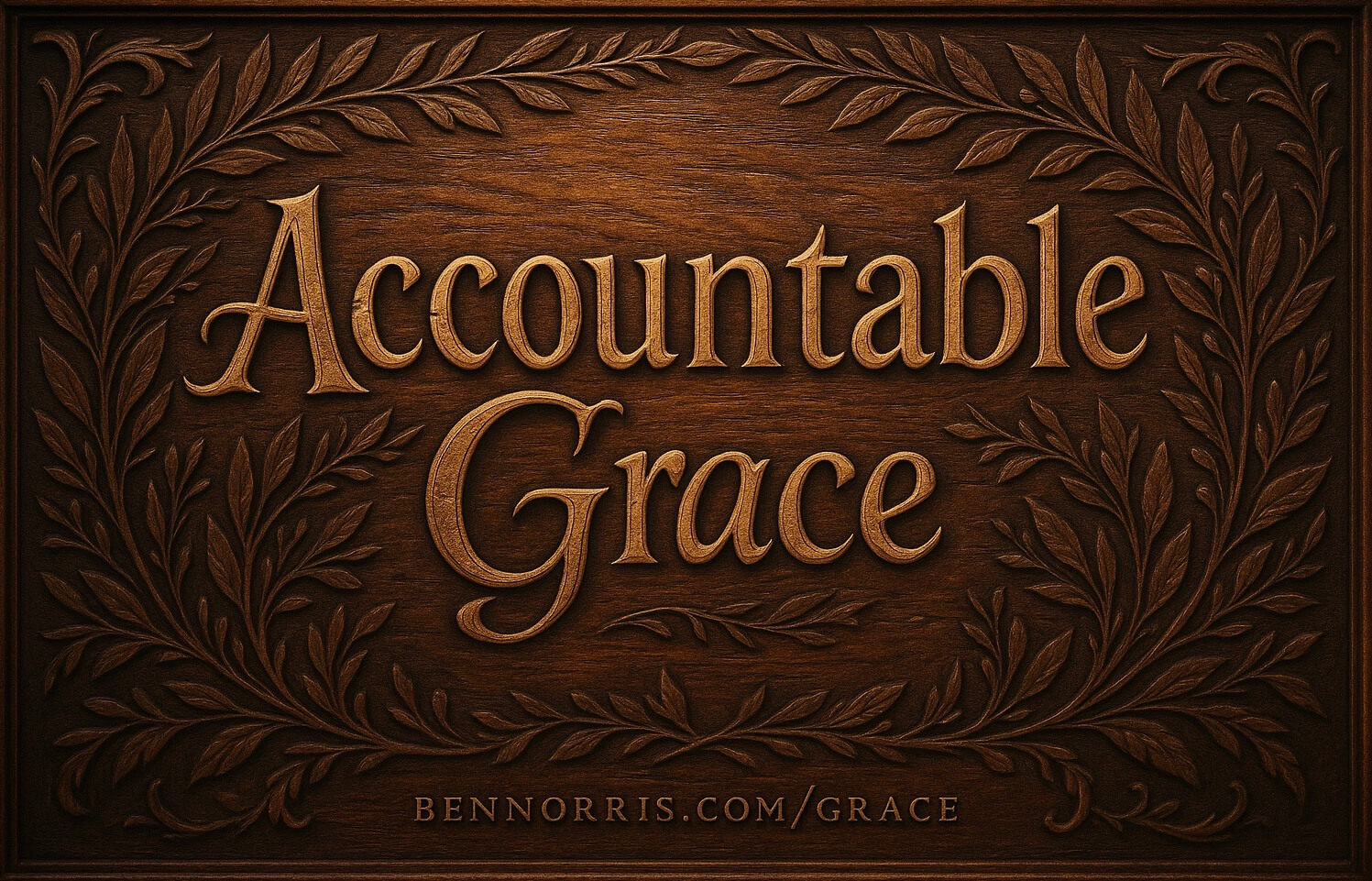“What could I do for you right now?” I froze. My mind spun, searching. Then I found a need I didn’t know I had: “Offer me accountable grace.”
A couple weeks ago, I shared some recent struggles, and learning the problem with seeking to be understood. I was touched by the kind and compassionate response from many, and encouraged by those who found the lesson beneficial.
As I met with my colleague and friend, he began with vulnerability, sharing some of his current challenges. Then he clearly turned the focus to me. He had read that last article, and knew more than most about some of the major stressors weighing on me.
My first answer was to keep doing exactly what he naturally did—just be human. I appreciate that he cares about me as a person, and that was exactly what I needed.
Then I paused. Longing for patience and understanding clashed with guilt and shame. I didn’t want a free pass. But I also didn’t want judgmental condemnation. Impossible paradoxes are nothing new for me. Dialectical thinking has equipped me to confront them, and a phrase came to my mind.
“My second request is accountable grace.”
I explained that I would need grace. I asked him to assume good intent and offer the benefit of the doubt. I knew I’d likely struggle again, and I asked for patience.
At the same time, I wanted accountability. If he can point out verbal violence, I can pause, reset, and repair.
When receiving grace without accountability, I have caused unintentional harm.
Another colleague recently told me that my focus can be like the eye of Sauron—uncomfortably intense when turned on you. He’s learned that I care deeply, first about the person, and then about improvement, and so he puts up with it. But irritated remarks can hang over me like a cloud of biting mosquitoes.
On the other hand, when accountability comes without grace, I can feel defeated and hopeless. My heart is in the right place, and I relentlessly seek to repair and improve. But when that is ignored, and no opportunities for improvement are allowed, it is devastating.
I was thrilled to realize this is already the culture on my team. We skip blame and fix process, not people. I love and often discuss Extreme Ownership with my team. We have achieved a healthy level that isn’t too…extreme.
A recent production support incident illustrated this. Our system degraded rapidly, going from full health one day to non-functional the next. The team rallied immediately, diagnosing and addressing the situation quickly. But no one cast blame or spoke ill of others.
The concept of accountable grace seemed to resonate with people on the team. An engineer spoke up, “This explains why I’ve felt safe owning mistakes on this team.”
This principle is deep. I have merely scratched the surface of understanding.
Grace allows us to be human. Accountability helps us grow. But together? They create connection and unlock potential.
If you have seen this in your life, I’d love to learn more. What did it look like? What difference did it make? I can’t wait to hear from you, via Email or on LinkedIn . Thank you!

